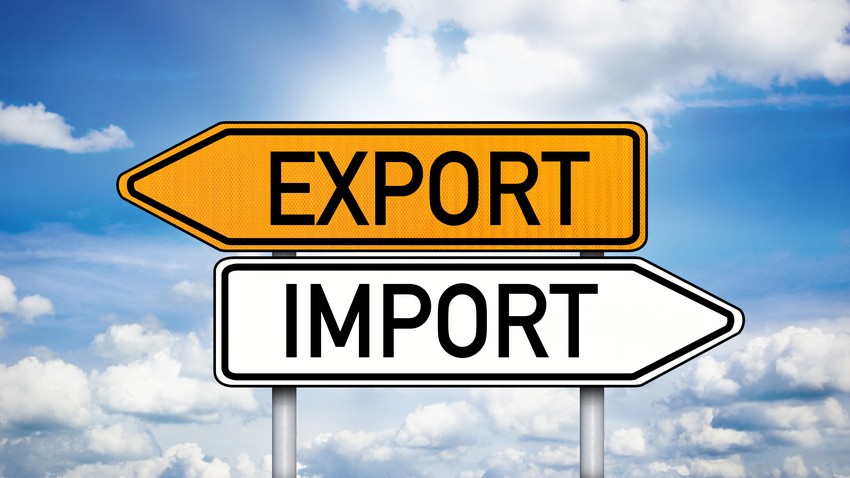Customs services EU

EU Customs Procedures
Since Poland is a member of the EU, all standard trade and customs regulations of the European Union apply here. Due to the free trade between the EU Member States in the domestic market, all import and export operations are carried out exceptionally with non-EU countries. Customs clearance is required only if the goods cross the EU border.
The trade relationship between the European Union and non-EU states is regulated by the Customs Code of the European Union - a set of provisions for the unification of trade procedures between the EU states and external counterparties. These provisions ensure that customs practices in all EU countries are uniform and transparent.
The main instrument of the EU customs regulation is the Common Customs Tariff (OTT), which is common to all EU Member States. OTT is a table of the goods and duty rates nomenclature applicable to a specific commodity item imported into the European Union from third countries. Duties vary depending on the type of import, nomenclature, and country of origin of the goods. EU Customs Procedures
EU Customs Procedures
Goods arriving at one of the customs points of the European Union are placed under the customs control procedure for temporary storage (up to 90 days) until one of the following customs procedures or re-export is determined for them:
1. Release of goods for free circulation (after fulfilling all export requirements, that is, paying the corresponding taxes (VAT), tariff duties, excise taxes and presenting the established permits/certificates).
2. Special procedures
Transit
An exporter, who imports goods to Poland from a non-EU country, is required to issue a transit procedure. The Customs Code provides for an internal transit procedure within the EU to the place of withdrawal of goods into free circulation and external transit procedure (outside the European Union). The withdrawal of goods into free circulation is allowed only after payment of all established duties and taxes, including VAT.
Placing goods under the customs warehousing or free zone procedure
Customs warehousing - goods exported to the European Union can be stored under customs supervision at a customs warehouse or in another place authorized by the customs administration, without imposing tariff duties and other customs duties related to the export of goods and commercial policy.
Free zones are special zones in the customs territories of the European Union, where the duty-free placement of imported goods is allowed without paying domestic taxes, until another approved customs procedure or re-exports is assigned to this product. However, the goods may also undergo simple operations, including processing and repacking.
Temporary importation of goods
Exported goods can be temporarily imported into the European Union without paying fees and duties for up to 2 years, provided that these goods will be re-exported without modification.
External and internal processing
External processing involves the export of goods from the customs territory of the European Union for the time necessary for processing, after which the goods are released for free circulation with full or partial exemption from taxes and duties.
Internal processing is carried out when certain goods are imported into the EU for processing under customs control and subsequent re-export, while the exporter is exempt from paying taxes, duties and most of the customs procedures.
Exports of goods to the EU states
The liberalization of trade relations with the European Union opens up wide opportunities for exporters to increase exports to the EU states. Entering the EU market involves the need to comply with a number of administrative and legal directives, including the issuance of licenses and documents confirming compliance of imported products with all EU standards.
Necessary basic documentation for the export of goods to the EU states
The Economic Operator Registration Number (EORI)
The Economic Operator Registration Identification Number (EORI) is a unique identifier assigned by the customs administration of the EU state to each economic entity (company or individual) operating under the EU customs legislation.
Non-EU exporters automatically receive the EORI number upon the first filing of a simplified (EXS), cargo (SAD) or import (ENS) customs declaration.
The EORI number is used by operators as an identifier (including customs declarations) when interacting with the EU customs authorities.
Cargo Customs Declaration (Single Administrative Document - SAD)
This declaration is the main customs form that is used directly when exporting /importing goods across the border of the European Union. SAD is submitted to the customs administration of the EU Member State in electronic or paper form. This document is used to declare cargo status information by the importer (import/export, transit, storing goods at the customs point, disposal, processing, etc.).
Import Customs Declaration (Entry Summary Declaration - ENS)
This declaration is submitted electronically before the goods cross the EU border. It contains information on imported goods (waybills, invoices, etc.). The carrier is obliged to submit an ENS declaration to the customs administration of the EU country through which the goods will be imported into the EU.
InPl Group provides customs clearance services in Poland, as well as the launch of goods on the market and warehouse logistics services.
Contacts
-
Kraków 31-509, ul. Aleksandra Lubomirskiego 39/1 +48 882-488-166 +48 571-807-904 [email protected]
-
Lublin 20-340, ul. Garbarska 18/10 +48 512-895-895 [email protected]
-
Katowice 40-082, ul. Sobieskiego 2 +48 514-375-043 +48 793-849-692 [email protected]
-
Warszawa 00-001, ul. Janka Muzykanta 60 +48 784-971-203 +48 793-849-692 +48 534-315-931 [email protected]
-
Wrocław 54-203 ul. Legnicka 55F/356 +48 503-634-667 +48 534-315-931 [email protected]



